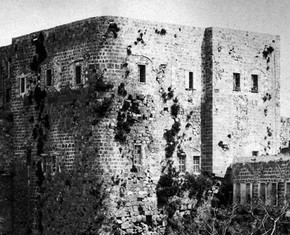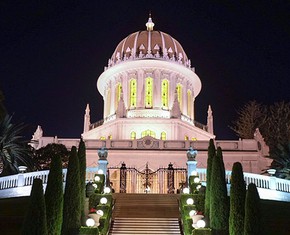The views expressed in our content reflect individual perspectives and do not represent the authoritative views of the Baha'i Faith.
O SON OF SPIRIT!
I created thee rich, why dost thou bring thyself down to poverty? Noble I made thee, wherewith dost thou abase thyself? Out of the essence of knowledge I gave thee being, why seekest thou enlightenment from anyone beside Me? Out of the clay of love I molded thee, how dost thou busy thyself with another? Turn thy sight unto thyself, that thou mayest find Me standing within thee, mighty, powerful and self-subsisting. – Baha’u’llah, The Hidden Words, p. 6-7.
In the last installment of this series of meditations on Baha’u’llah’s Hidden Words, we explored just one of the multiple implications of the passage above. As the name of the book suggests, many meanings reside in each of the Hidden Words, so this short essay will attempt to examine another one – the idea of the soul as a polished mirror that has the capacity to reflect the Sun of Truth.
A little more than a hundred years ago the first American Baha’i, an insurance company executive named Thornton Chase, wrote a letter to Abdu’l-Baha in the Holy Land. This practice, common among the early Baha’is in the west, sometimes resulted in answers to questions that illuminated entirely new understandings about the Baha’i writings and teachings. Thornton Chase, curious about the sentence “Turn thy sight unto thyself, that thou mayest find Me standing within thee, might, powerful and self-subsisting,” asked Abdu’l-Baha to explain. The sentence (which had then been translated in an earlier version as “Turn thy face so that thou mayest find Me within the, Powerful Mighty, and Supreme”) had piqued Chase’s interest and reminded him of a Biblical passage. Abdu’l-Baha responded:
This is the statement to which His Holiness, the Christ, referred His Apostles in the Gospel, saying: ’The Father is in the Son and the Son is in you.’
This is evident that, when the hearts are purified and through the divine education and heavenly teachings become the manifestators of infinite perfections, they are like clear mirrors and the Sun of Truth will reflect with might, power and omnipotence in such mirrors, and to such an extent that whatsoever is brought before them is illumined and ignited. This is a brief interpretation because of lack of time. Therefore, do thou reflect and ponder over it, so that the doors of significance may be opened before thine eyes. – Abdu’l-Baha: Extract from Tablet to Thornton Chase, June 1911: Star of the West Vol. II, Nos. 7 and 8, pp. 11-12.
This strikingly beautiful metaphor of the Sun and the mirror appears throughout the Baha’i writings, illuminating the relationship of the Manifestation to God and the way each of us relates to the light and glory of the new revelation.
Abdu’l-Baha asked Thornton Chase to reflect and ponder over this metaphor, and we can do that, too. Here, in another passage that uses the analogy of the mirror, Baha’u’llah elucidates the key to its symbolism:
Upon the inmost reality of each and every created thing He hath shed the light of one of His names, and made it a recipient of the glory of one of His attributes. Upon the reality of man, however, He hath focused the radiance of all of His names and attributes, and made it a mirror of His own Self. Alone of all created things man hath been singled out for so great a favor, so enduring a bounty.
These energies with which the Day Star of Divine bounty and Source of heavenly guidance hath endowed the reality of man lie, however, latent within him, even as the flame is hidden within the candle and the rays of light are potentially present in the lamp. The radiance of these energies may be obscured by worldly desires even as the light of the sun can be concealed beneath the dust and dross which cover the mirror. Neither the candle nor the lamp can be lighted through their own unaided efforts, nor can it ever be possible for the mirror to free itself from its dross. It is clear and evident that until a fire is kindled the lamp will never be ignited, and unless the dross is blotted out from the face of the mirror it can never represent the image of the sun nor reflect its light and glory. – Baha’u’llah, Gleanings from the Writings of Baha’u’llah, pp. 65-66.
Baha’u’llah tells us here that we each have all the divine attributes latent within us, and that lighting our lamp and polishing the mirror of our souls can occur if we turn our sight inward. If we polish our inner mirrors by acquiring those attributes we can become, the Baha’i teachings say, a torch of the fire of the love of God – a shining, living embodiment of humility, evanescence and spirituality.
Download the free The Hidden Words eBook.
















Comments
Sign in or create an account
Continue with Googleor